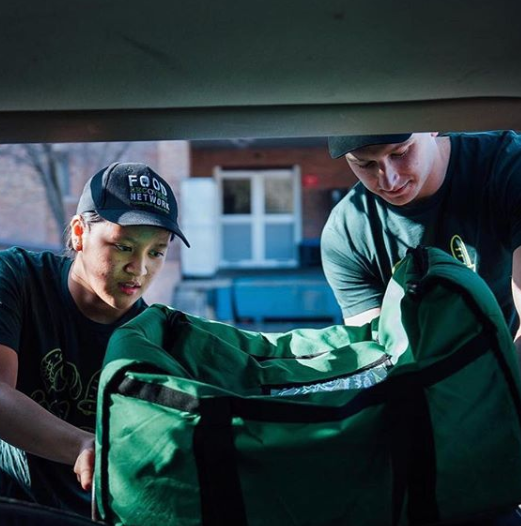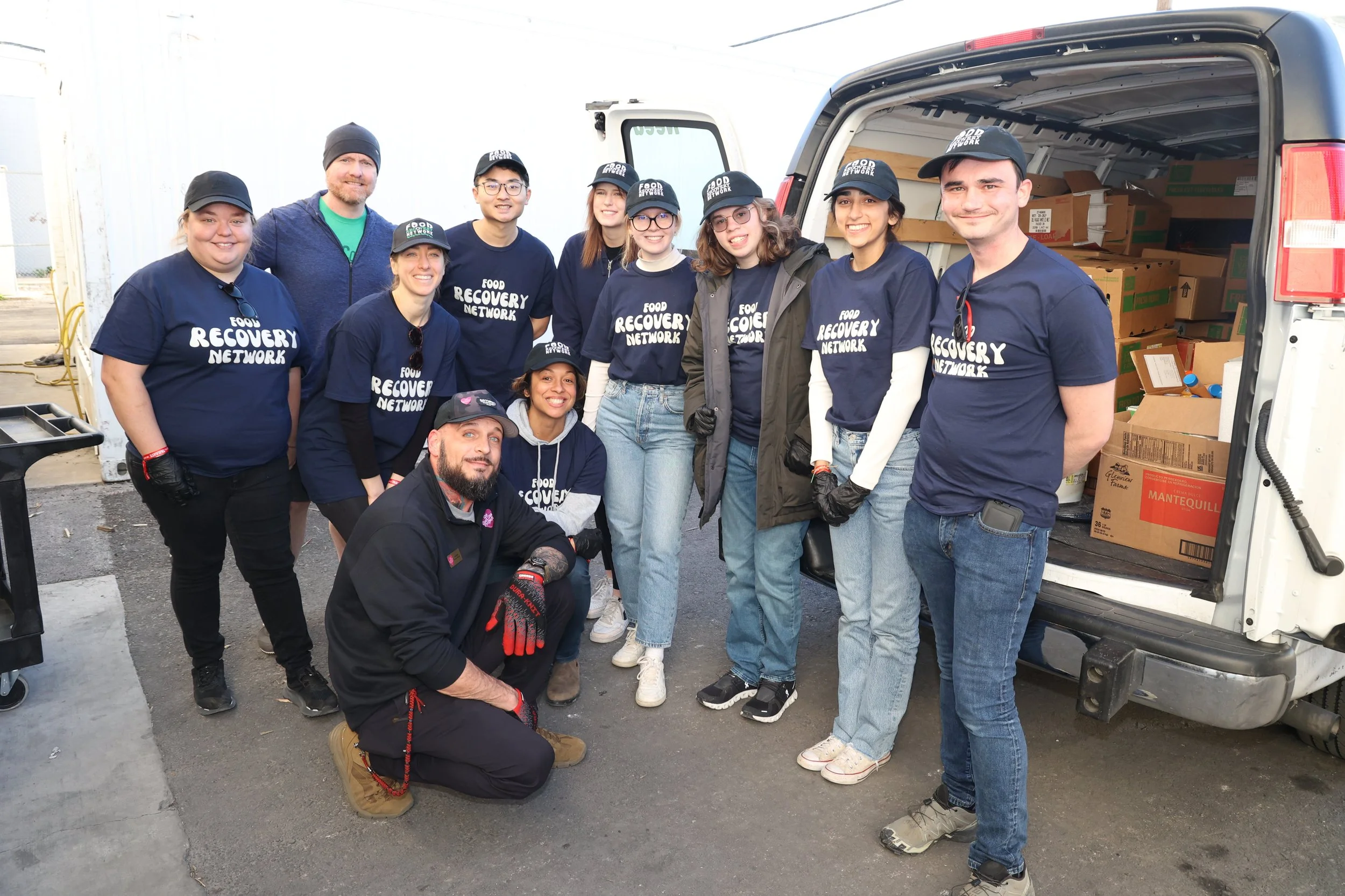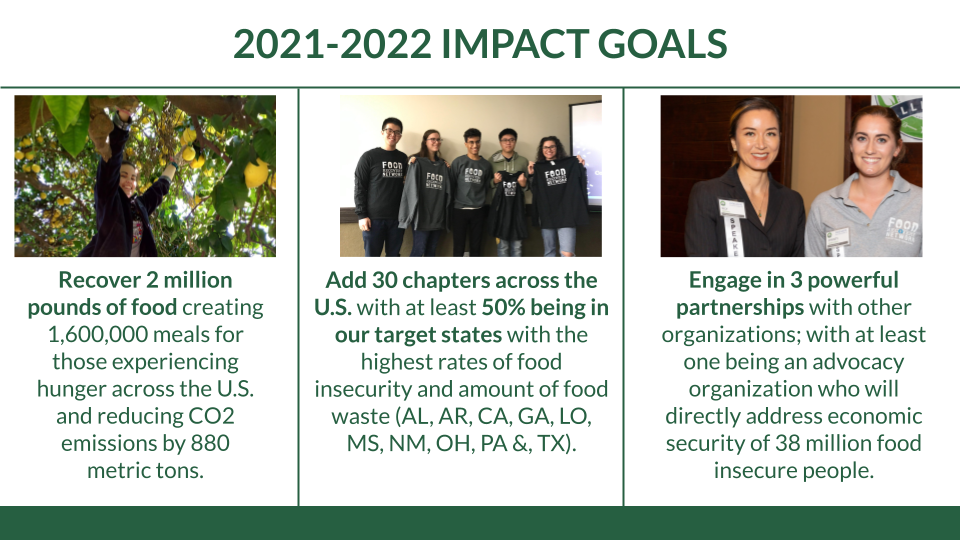Throughout the conversation we gave thanks to the hard-working student leaders who tirelessly conduct food recoveries, recruit fellow students to help out, and who organize and participate in advocacy and educational events. We know that 85% of our chapters are facing challenges related to COVID. Still. And yet, when we look at our numbers, despite the challenges they face, our student leaders are showing up to help feed their neighbors in need, to help their fellow students in need. While the amount of food recovered by our FRN chapters is still lower than pre-pandemic semesterly averages, our chapters have recovered more than 102,917 pounds of surplus food compared to the previous academic year, a 38% increase. There goes my heroes, off to class, off to practice, headed to church, to the gym. Thank you all so much.
What we learned: Investments of all kinds matter
The Roundtable Talk offered insights into what we learned over the course of the previous program year. Despite the hardships, FRN surpassed all of our ambitious goals.
And I want to give space to the hardships for just a moment as we did during the Talk. This past year was hard. There were continued stressors, and those stressors do not seem to be letting up: inflation, continued COVID disruptions, confusion around the monkeypox virus, gun violence on top of the life stressors students take on just by being on the journey to obtain higher education. Throughout those hardships, together, we achieved. We give so much kudos to our student leaders and everyone in the FRN network.
What was it that enabled FRN to achieve our metrics despite the hardships? I spoke at length about investments. What do I mean by investments? I mean both the material (money) and the intangible (cultural).
FRN pays every single person on our team a living wage. Materially, people deserve to be paid fairly for their work and in doing so, our team was able to show up and achieve. FRN pays the farmers we work with to harvest and transport their surplus food, and often, as you can read about in our Atlanta pilots, we also pay them for the actual produce. We pay student leaders for their talents when they commit to specific project work with FRN outside of their dedicated volunteer chapter work. FRN supports the economic security of our team. We respect our network and that respect means paying people fairly.
We invest in our communities. Our Atlanta Georgia gleaning pilots continue to be an incredible learning resource for FRN on how to listen to the needs of the community in which you are working with the purpose of helping. The community members know where the surplus food needs to go, and they know what resources they need to move more food faster to feed more people. That’s why we’re starting a 6-week after-school pop-up farmers market at K-12 schools in Atlanta, focusing on areas with disproportionate rates of hunger. And we’ve already put more than $16,000 back into the Atlanta community.
We’re investing in our data-driven approach to feeding more people, faster. We understand that our metrics of pounds of food recovered, meals donated, CO2 emissions diverted, and chapter growth tell an important story, and it’s not the whole story. We will work this year to include new metrics, such as continuing to track how much money we are able to put back into the communities we are supporting, and how many volunteer hours we are able to harness to achieve the goals of our communities.
We will continue to invest in our incredible student leaders. We are delighted to get back out into the field to meet up with our leaders and support them live-time. Our students need grants to purchase supplies, and we will continue to offer programming based on their needs.
From our deepening relationships with Poor People’s Campaign to Fight for $15, WeightWatchers to support the passage of the Food Donation Improvement Act, our FRNds in Atlanta and Irvine to support our gleaning pilots, we crystalized our belief that when we work with values-aligned organizations, we are able to increase our impact to end hunger forever.
We consider you a partner in this work. And the relationship FRN has with you is of utmost importance. Your activities, attending the Roundtable Talks, reading our blog and newsletter, making financial contributions, checking to see if specific schools have a chapter, and making introductions when you find out they do not are part of the cultural shift to normalize food recovery.
Thank you for all that you do. I am so excited to continue to highlight our partnerships in this upcoming program year, and be in touch.
Your invitation to be involved: 2022-2023 Impact Goals












